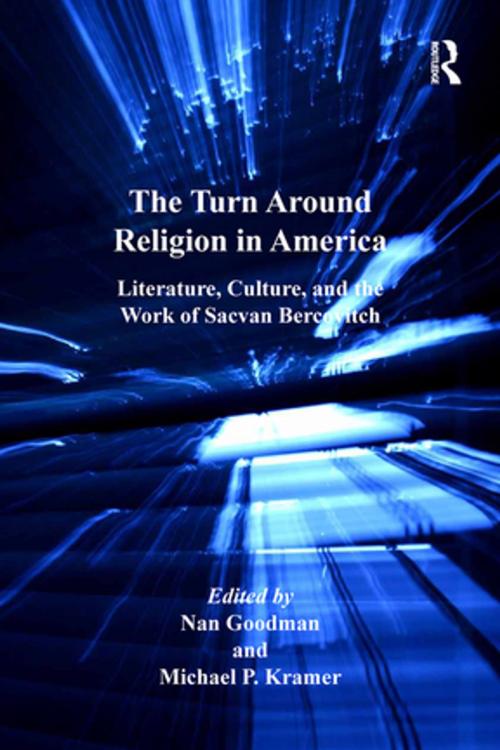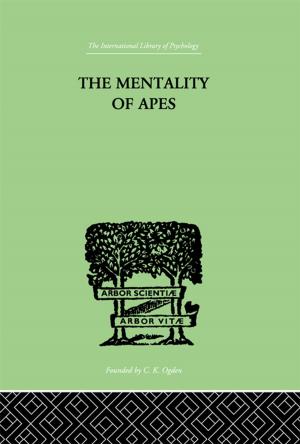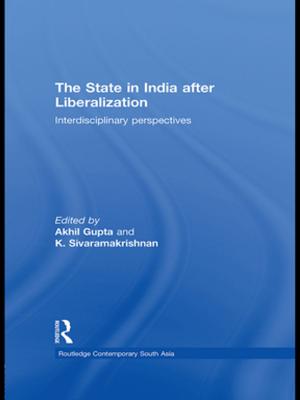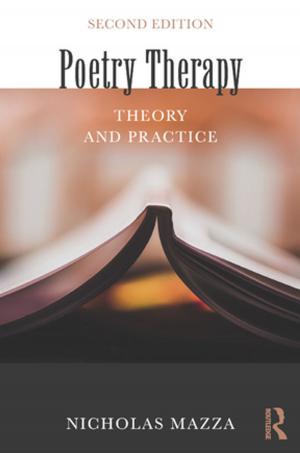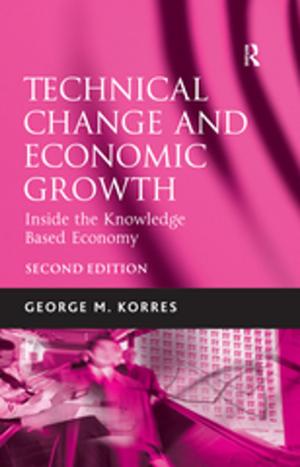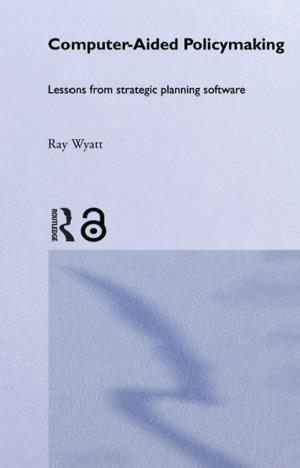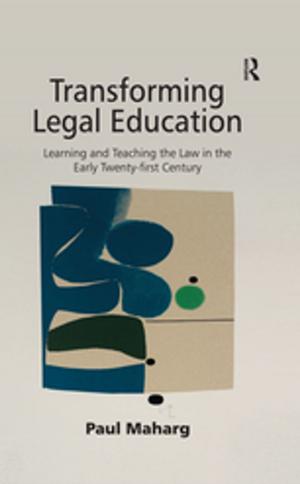The Turn Around Religion in America
Literature, Culture, and the Work of Sacvan Bercovitch
Fiction & Literature, Literary Theory & Criticism, Theory| Author: | Michael P. Kramer | ISBN: | 9781317012931 |
| Publisher: | Taylor and Francis | Publication: | February 24, 2016 |
| Imprint: | Routledge | Language: | English |
| Author: | Michael P. Kramer |
| ISBN: | 9781317012931 |
| Publisher: | Taylor and Francis |
| Publication: | February 24, 2016 |
| Imprint: | Routledge |
| Language: | English |
Playing on the frequently used metaphors of the 'turn toward' or 'turn back' in scholarship on religion, The Turn Around Religion in America offers a model of religion that moves in a reciprocal relationship between these two poles. In particular, this volume dedicates itself to a reading of religion and of religious meaning that cannot be reduced to history or ideology on the one hand or to truth or spirit on the other, but is rather the product of the constant play between the historical particulars that manifest beliefs and the beliefs that take shape through them. Taking as their point of departure the foundational scholarship of Sacvan Bercovitch, the contributors locate the universal in the ongoing and particularized attempts of American authors from the seventeenth century forward to get it - whatever that 'it' might be - right. Examining authors as diverse as Pietro di Donato, Herman Melville, Miguel Algarin, Edward Taylor, Mark Twain, Robert Keayne, Nathaniel Hawthorne, Paule Marshall, Stephen Crane, Ralph Waldo Emerson, and Joseph B. Soloveitchik, among many others-and a host of genres, from novels and poetry to sermons, philosophy, history, journalism, photography, theater, and cinema-the essays call for a discussion of religion's powers that does not seek to explain them as much as put them into conversation with each other. Central to this project is Bercovitch's emphasis on the rhetoric, ritual, typology, and symbology of religion and his recognition that with each aesthetic enactment of religion's power, we learn something new.
Playing on the frequently used metaphors of the 'turn toward' or 'turn back' in scholarship on religion, The Turn Around Religion in America offers a model of religion that moves in a reciprocal relationship between these two poles. In particular, this volume dedicates itself to a reading of religion and of religious meaning that cannot be reduced to history or ideology on the one hand or to truth or spirit on the other, but is rather the product of the constant play between the historical particulars that manifest beliefs and the beliefs that take shape through them. Taking as their point of departure the foundational scholarship of Sacvan Bercovitch, the contributors locate the universal in the ongoing and particularized attempts of American authors from the seventeenth century forward to get it - whatever that 'it' might be - right. Examining authors as diverse as Pietro di Donato, Herman Melville, Miguel Algarin, Edward Taylor, Mark Twain, Robert Keayne, Nathaniel Hawthorne, Paule Marshall, Stephen Crane, Ralph Waldo Emerson, and Joseph B. Soloveitchik, among many others-and a host of genres, from novels and poetry to sermons, philosophy, history, journalism, photography, theater, and cinema-the essays call for a discussion of religion's powers that does not seek to explain them as much as put them into conversation with each other. Central to this project is Bercovitch's emphasis on the rhetoric, ritual, typology, and symbology of religion and his recognition that with each aesthetic enactment of religion's power, we learn something new.
